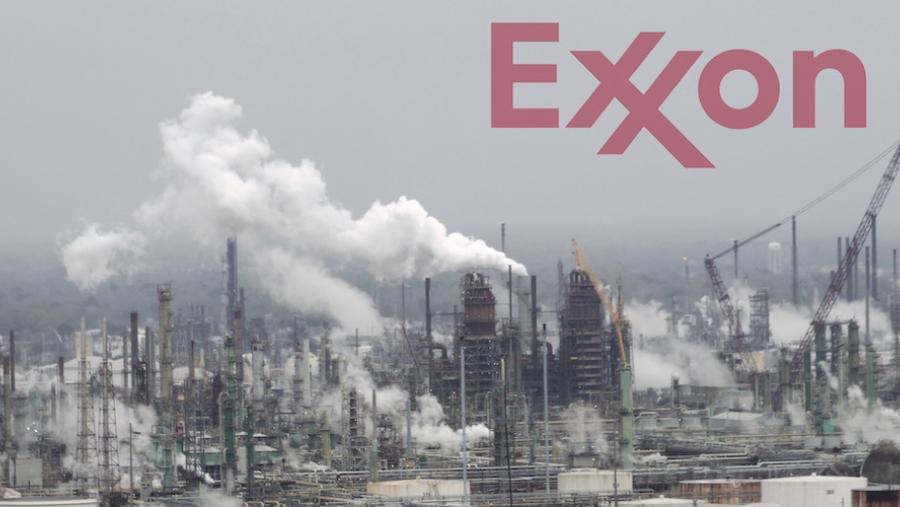Submitted by Don Wiener on

In a victory for environmental and shareholder activists, the Security and Exchange Commission (SEC) has denied ExxonMobil's request to prevent a shareholder vote on a resolution requiring the oil giant to disclose its political spending, including "dark money" contributions to advocacy groups and trade associations.
The SEC ruling comes on a shareholder proposal brought by the Unitarian Universalist Association (UUA) that would require Exxon to compile a semiannual report on its "political contributions and expenditures (direct and indirect) with corporate funds," as well as related company policies, and post it on the company's website.
The SEC also rejected Exxon's attempt to prevent a vote on a resolution brought by an activist shareholder to create a board-level committee to review and oversee the company's strategy on climate change.
The SEC rulings were first reported by Climate Liability News.
Dark Money
Dark money is money used to influence elections that is passed through trade associations and advocacy groups in a way that obscures its true source. These groups can take money from corporations, unions, and individuals, and, for example, air TV ads to influence elections, without disclosing where the money came from.
In trying to deny the resolution's place on the shareholder ballot, to be voted at its May 29 annual meeting, Exxon claimed that it did disclose its policies having to do with political contributions. UUA correctly noted, however, that Exxon only discloses direct contributions to candidates, candidate committees, PACs and party committees. Money run through other nonprofit groups is not disclosed.
According to the Climate Investigation Center, fossil fuel and corporate trade groups spent $1.4 billion on PR firms and ad buys between 2007 and 2018. How much of that money is Exxon's is unknown.
Taking Climate Change Seriously
The climate shareholder proposal, brought by Arjuna Capital, calls for Exxon to create a new board committee to "assess the company's responses to climate related risks and opportunities, including the potential impacts of climate change on business, strategy, financial planning, and the environment."
Exxon claimed that it already considers climate change through a committee with a broad mandate to evaluate the company's health and safety and environmental performance.
According to Climate Liability News, Arjuna Capital argued that Exxon "has no specific mention of climate change in its charter and while it may address climate change to an extent, the wide array of issues under its jurisdiction do not provide the specialized focus necessary to address the 'more strategic climate change issues concerning investors, including the emissions associated with burning the company's product.'"
Most people would think that Exxon has a committee at the board of director level to tackle climate change by itself, but it does not.
Arjuna Capital noted that with only one climate expert on its board, the company is ill-prepared to deal with the biggest threat to its business and shareholders in this century.
The shareholder meeting is May 29 in Dallas. Stay tuned.

